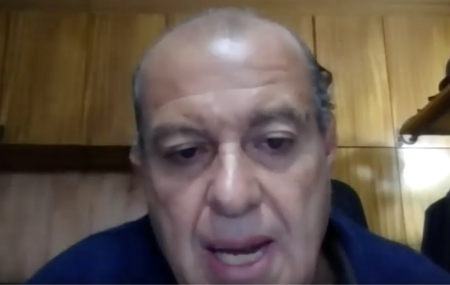Overcoming inequalities through the COVID-19 recovery - GPR2C, RIPESS & Urgenci HLPF Side event
julho 2021

Resumo :
The official side event to the UN High Level Political Forum took place on-line on July 8, 2021 focusing on examples from the social and solidarity economy in overcoming the growing inequalities during COVID-19.
The side event “Overcoming inequalities through the COVID-19 recovery: proposals from the Social and Solidarity Economy and the Right to the City ” was co-organised by RIPESS , the Global Platform for the Right to the City (GPR2C) and Urgenci. The objective was to demonstrate: the diversity and potential of Social Solidarity Economy to overcome increased inequalities that have been caused by the COVID-19 pandemic; and the resilient pathways towards recovery in cities and in terms of urban-rural linkages. The side event brought together around 70 participants from a wide range of actors (local, regional and national governments, civil society organizations, international organizations, academia) committed to SDG17 and multistakeholder partnerships.
The panelists and interventions from the floor also represented all continents apart from Oceania. The side event focused on presenting concrete examples of the possibilities presented by Social and Solidarity Economy (SSE) and the Right to the City to contribute to reducing inequalities in various fields, and how they have preserved and rebuilt communities throughout the COVID-19 pandemic as a clear illustration of SDG1. The discussion highlighted concrete examples from multiple domains (informal economy, housing, food production and consumption, basic services and others) from a solidarity-based perspective and under the framework of advancing the implementation of the 2030 Agenda.
These examples illustrated SDG2, SDG5, SDG8 and SDG11 in many different ways. A key aspect was the fact that a vicious circle of loss of informal and formal employment leads to loss of other essential human rights (right to food, right to health, right to housing, etc.) whereas women’s and other community-based cooperatives and collectives of various kinds can help formalise essential services that can help uphold these rights. These panelists also emphasized the need for Social Security protection and a food safety net for all, based on healthy, nutritious local and territorial markets. The role of local and other levels of government is also key to supporting the vulnerable.
The panel was moderated by RIPESS’s joint coordinator and URGENCI’s President, Judith Hitchman. The overarching logic of the interventions highlighted the need for a paradigm shift from the current mainstream economic development and growth models to achieve the Sustainable Development Goals (SDGs) and advance towards more just, equitable and sustainable communities that respect human rights.
SSE is currently playing a critical role in addressing and mitigating the short- and long-term impacts of the COVID-19 that can significantly contribute to such a paradigm change. In the short term, SSE actors have collective solutions that strengthen public services and complement government action. In the long run, SSE provides economic alternatives, promotes inclusive and sustainable models, and strengthen access to many human rights. These aspects were recognised by the UN Secretary General in his address to the UN Commission for Social Development in February 2021. He stated that “Social Solidarity Economy embodies another model that seeks a new balance between economic efficiency and environmental resilience”.
See the details of the panelists’s interventions here.
The video : 1:27:02
Side event co-organized by the GPR2C, RIPESS & Urgenci on the occasion of the 2021 High Level Political Forum on Sustainable Development.
Speakers:
André Luzzi - Civil Society and Indigenous Peoples Mechanism of the UN Committee on World Food Security
Norliza Hashim, Urbanise Malaysia
Nelson Saule, Global Platform for the Right to the City
Simel Esim, International Labour Organization (ILO) Cooperatives Unit
Sonia Dias, Women in Informal Employment: Globalizing and Organizing (WIEGO)
Vic Van Vuuren, ILO / UN Inter-Agency Task Force on Social and Solidarity Economy
Moderator:
Judith Hitchman, Intercontinental Network for the Promotion of Social Solidarity Economy
